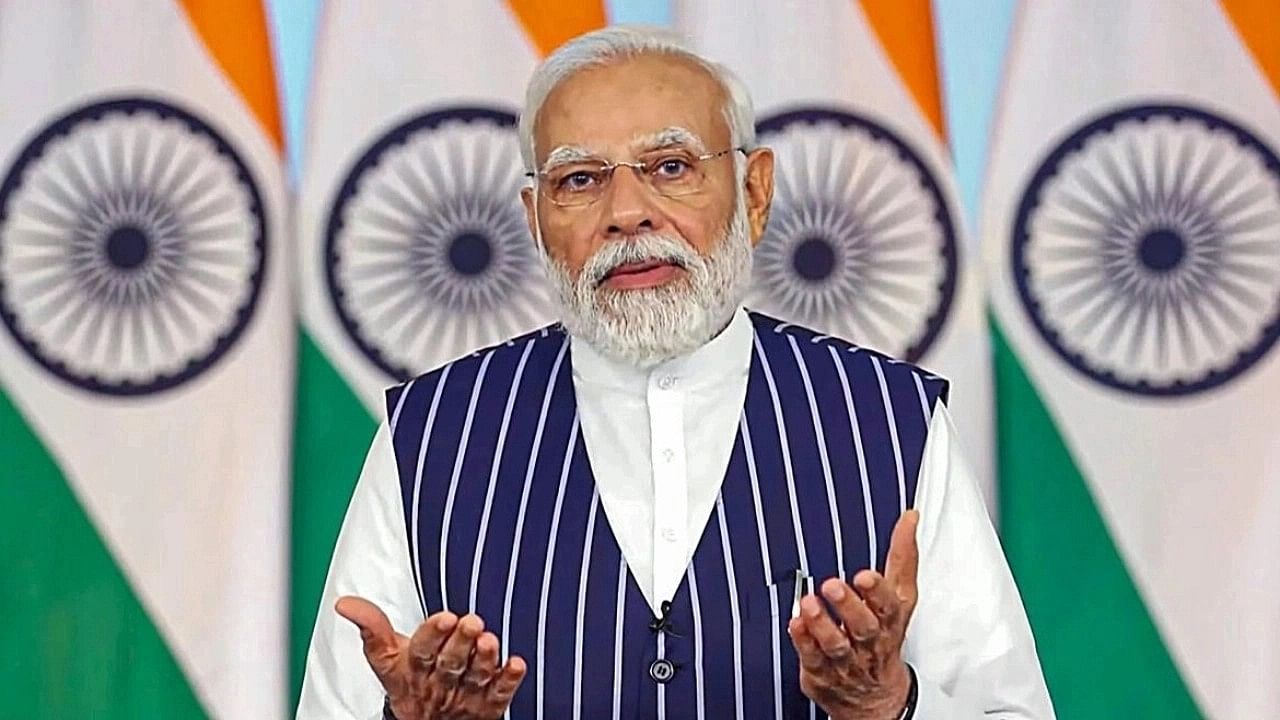
PM Narendra Modi.
Credit: PTI File Photo
Reactance: ‘An unpleasant motivational arousal that emerges when people experience a threat or loss to their free behaviours. It serves as a motivator to restore one’s freedom.’
When I came across this word, “reactance,” for the first time a few days ago, in connection with my studies on consumer behaviour, I felt it explained the feeling I saw in the thousands of voters that I met during the last two months of campaigning in this election. Coined in the mid-sixties by a behavioural psychologist, “reactance” refers to the seemingly irrational behaviour of a consumer to deny an offering if they see it as restricting their choice.
Now that the results of the election are out and Narendra Modi and the BJP polled 100 seats less than their stated target and much less than the exit poll predictions, many are trying to explain this “surprise.”
The fact that I.N.D.I.A alliance ran a cohesive, focused campaign on issues such as jobs, price rises, and women empowerment and stayed steadfast to their narrative was undeniably a strong factor. The BJP’s messy seat-selection in certain states and their inner-party dynamics also probably contributed. Modi’s divisive diatribe, no doubt, would have alienated many.
However, while all these reasons are probably true, they did not create a “wave” against the BJP. What happened appears to be deeper. When I met voters who said they would not vote for Modi this time, they gave rational reasons. It also seemed that there was more on their mind that could not be clearly articulated.
Interestingly, this feeling did not seem to exist until around mid-April, just before the start of the election. Till then, Modi seemed “unstoppable,” as an international news magazine blared on its cover on April 11. The election seemed like a mere formality to acknowledge him as the leader once more, but now with a stronger mandate. By mid-April, things seemed to start changing. That was when I suddenly started hearing some grumblings among voters. My colleagues across the country started echoing the same sentiments.
A change
Some of the voters I met explained it as “giving him a third term would be too much” or “it’s good to vote for a change; it keeps these politicians on their toes.” These were not concrete reasons, just views. Others were more definite and said, “It is not good to put other political leaders in jail” (just around the time when Arvind Kejriwal had been sent to custody) and “it is good to have a strong opposition.”
So what was this feeling? After all, giving a leader a third term is not a bad decision if you feel he’s performing well. And while Kejriwal’s arrest may have been a moment of “crossing the line,” it is not as though the Modi government has not targeted its “enemies”—leaders of opposition, journalists, activists and so on. This has been happening right through the Modi years.
In my view, what these voters were expressing was a feeling of “reactance.”
The BJP campaign had increasingly become one that sounded like, “I know what’s good for you; just leave it to me.” The strident, triumphant declaration of “chaar sau paar” by Modi, Shah, and the BJP machinery suggested that their mandate was a done-deal and that the voter just had to complete the formality. Modi’s fear-mongering, warning of dire consequences of snatching “mangal sutras” and wealth by the opposition, if given a chance, tried to force voters into thinking that “there is no alternative.”
It was perhaps then that the voters experienced the phenomenon of reactance. It started with voters looking a bit sceptical about what Modi and the BJP were saying. Increasingly, many voters seemed to be digging their heels against all the BJP rhetoric, as if to say, “If you insist, I will resist.”
As the elections progressed, this phenomenon seemed to get stronger—voters who, at first, were either favourable to Modi or resigned to him but now seemed quiet and resentful. It was always under the surface, which is why we experienced it more as an “undercurrent” rather than “a wave.” The fact that the I.N.D.I.A bloc came together was an opportunity for people to express their “reactance” in action through their vote. It perhaps serves as a reminder to politicians that efforts to eliminate, or belittle competition can create a negative reaction. In a democracy like ours, where voters know the value of their freedom, this “reactance” can prove costly!
(The writer is the Secretary for AAP, Bengaluru)